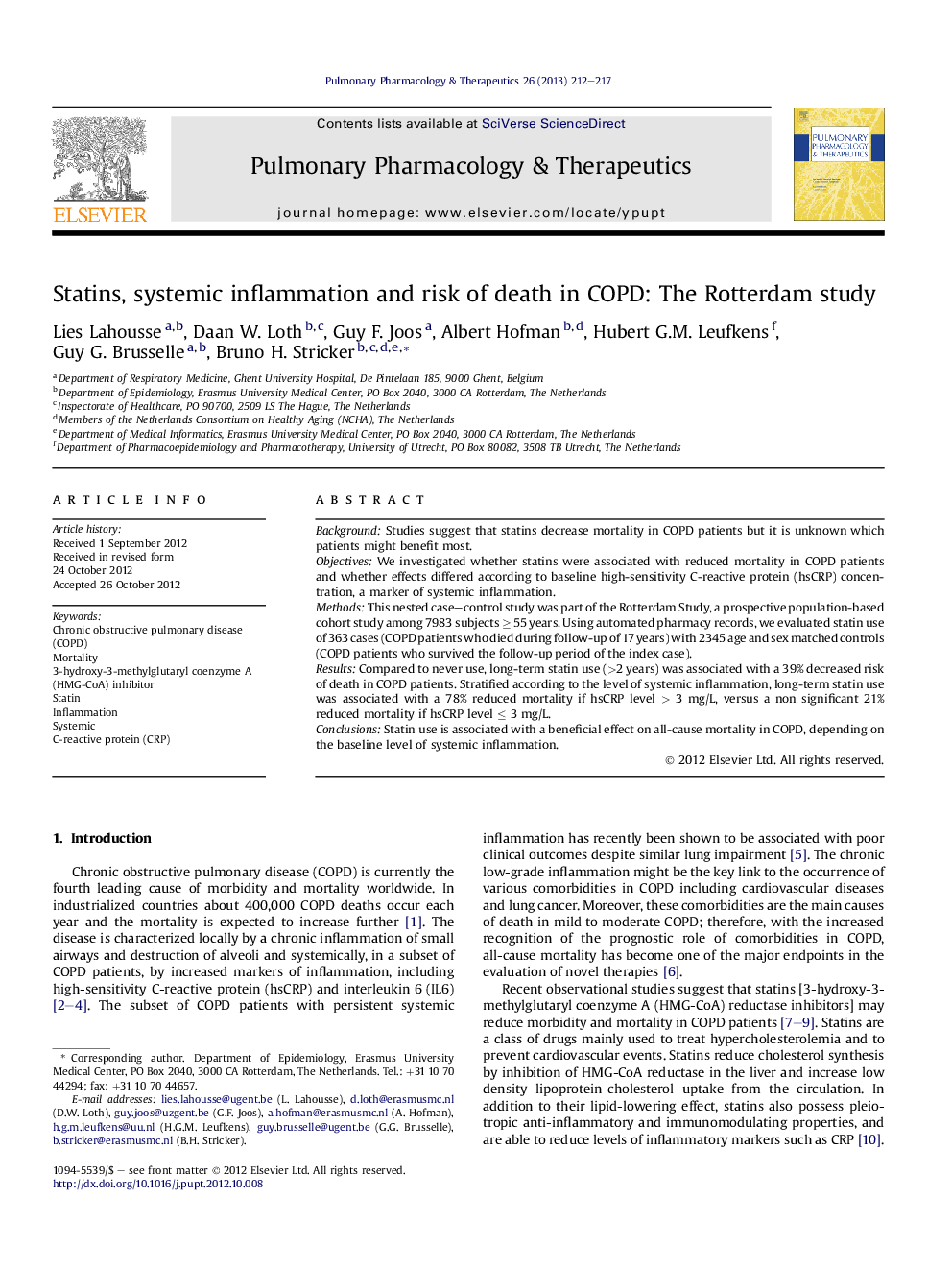| Article ID | Journal | Published Year | Pages | File Type |
|---|---|---|---|---|
| 2567042 | Pulmonary Pharmacology & Therapeutics | 2013 | 6 Pages |
BackgroundStudies suggest that statins decrease mortality in COPD patients but it is unknown which patients might benefit most.ObjectivesWe investigated whether statins were associated with reduced mortality in COPD patients and whether effects differed according to baseline high-sensitivity C-reactive protein (hsCRP) concentration, a marker of systemic inflammation.MethodsThis nested case–control study was part of the Rotterdam Study, a prospective population-based cohort study among 7983 subjects ≥ 55 years. Using automated pharmacy records, we evaluated statin use of 363 cases (COPD patients who died during follow-up of 17 years) with 2345 age and sex matched controls (COPD patients who survived the follow-up period of the index case).ResultsCompared to never use, long-term statin use (>2 years) was associated with a 39% decreased risk of death in COPD patients. Stratified according to the level of systemic inflammation, long-term statin use was associated with a 78% reduced mortality if hsCRP level > 3 mg/L, versus a non significant 21% reduced mortality if hsCRP level ≤ 3 mg/L.ConclusionsStatin use is associated with a beneficial effect on all-cause mortality in COPD, depending on the baseline level of systemic inflammation.
